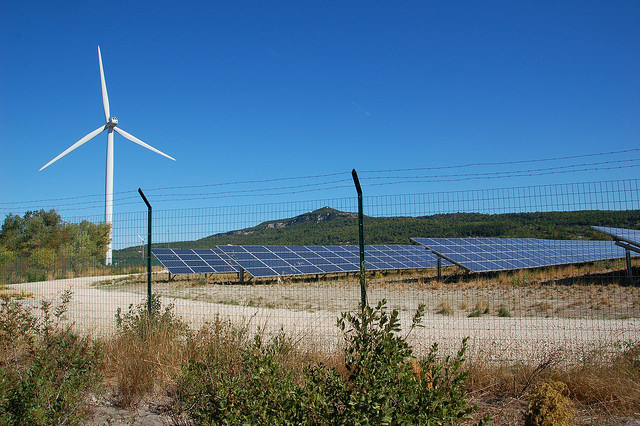
 By DEBRA ACZEL and MIRIAM ACZEL
By DEBRA ACZEL and MIRIAM ACZEL
Nuclear Energy in France: a ‘success story’
France is in the enviable position of having among the lowest energy costs in Europe, coupled with low carbon emissions–thanks to 58 nuclear plants that provide 75% of France’s total energy consumption. As a result of nuclear investment, France is currently the largest net-exporter of energy in the world, bringing in revenues estimated at 3 billion euros annually.
At the height of the international oil crisis in the 1970s when the Organization of Petroleum Exporting Countries (OPEC) dramatically increased oil prices, the French government opted to invest heavily in the nuclear power option to ensure future energy security. In a speech on French national television on March 6, 1974, Prime Minister Pierre Messemer presented the case for nuclear energy:
‘France has not been favored by nature in energy resources. There is almost no petrol on our territory, we have less coal than England and Germany and much less gas than Holland … our great chance is electrical energy of nuclear origin because we have had good experience with it since the end of World War II … In this effort that we will make to acquire a certain independence, or at least reduced dependence in energy, we will give priority to electricity and in electricity to nuclear electricity.’
With centralized decision-making, strong government support, and using a standard Westinghouse design for reactor construction, 76% of French reactors were built in less than 7 years. Much of the France’s experience with nuclear power has been touted as a “success story” that has propelled the country above many other nations in providing inexpensive low-carbon energy.
But the French nuclear plants were designed with an expected 40-year life-span, and their average age is now 35 years. And France, while using a high percentage of recycled nuclear fuel in power production, still faces the problem of how to handle waste products. Thus, the government faces a choice: invest in renewing the fleet of nuclear plants or invest in renewables—or support a mix of the two. Decommissioning old nuclear plants, building a new generation of plants, developing a system of renewables—all these options come with significant price tags.
A Non-nuclear Future?
Under former French President Holland, the Energy Transition Law (Act of 17 August 2015) was passed to promote energy independence, cut greenhouse gas emissions, reduce fossil fuel dependence, increase renewables, and reduce overall energy consumption. It also set the goal of reducing nuclear sources to 50% of the energy mix by 2025. To meet this goal would require closing a number of currently operating reactors; according to a 2017 Forbes article, replacing the lost power generated by these plants “would require quadrupling all non-hydro renewables, the equivalent of building 40,000 MW of wind turbines.” France has said that a decision will be made on reactor closures by the end of 2018, keeping in mind the need to avoid energy shortfalls during the transition away from nuclear.
“Make our Planet Great Again”—Emmanuel Macron
Since becoming President of France in May 2017, Emmanuel Macron has asserted French leadership in the global fight against climate change. In July 2017 Macron announced an ambitious Climate Plan, with the goal among other things of “carbon neutrality by 2050” and ending fossil-fuel based energy production, including shale gas or other exploration or development of hydrocarbon resources. The Plan sets a target of 32% renewables in France’s energy arsenal by 2030.
Macron responded to U.S. President Donald Trump’s decision to pull out of the Paris Agreement on Climate Change by issuing a call to intensity the global fight against climate change. In an April 2018 speech to the American Congress he urged the U.S. and France to work together to confront the challenges of climate change, saying “Let us work together in order to make our planet great again.”
Macron—the “green” leader
President Macron is positioning France as a global leader in clean energy strategies and the fight against climate change. He has committed France to continued reduction of carbon emissions and has promised to close coal-based generation plants to further reduce the already low percentage (7%) of fossil fuel use. In spite of the Energy Transition Law’s goal of reducing nuclear power, France will not necessarily stop constructing new nuclear power plants. In fact, French energy company EDF is currently building a plant in the North and Macron has said: “No options [including nuclear] should be excluded.” Macron reiterates that he is committed to reducing carbon emissions and nuclear generation is an emission-free energy source, telling France 2 in a December 2017 interview: “My priority in France, Europe and internationally is CO2 emissions and (global) warming.”
In a June 25, 2015 meeting of the EU’s Environmental Council, Nicolas Hulot, Minister for Ecological and Inclusion transition and Brune Poirson, Minister of State, advocated strongly to push the EU for more stringent rules on climate change, vehicle emissions, and reduction of plastic pollution. Hulot stated: “In keeping with the Climate Plan we would like to see Europe setting more ambitious targets.” In the meeting, France proposed going beyondthe EU’s 2030 target of 30% reduction in C02 emissions by proposing a 40% reduction, compared with 2021 levels.
Macron’s pledge to help the developing world “scale up”
Macrons commitment to reducing carbon footprint and expanding renewable energy sources goes beyond Europe as he is spearheading efforts in developing countries. At a March 2018 meeting in New Delhi of investors and leaders from 20 mainly African nations, Macron pledged 700 million euros for solar projects in developing countries. This comes after France had committed 300 million euros for solar projects in 2015 at a global alliance co-founded with India. At this launch of a Global Solar Alliance, Macron expressed concern that the pace of transitioning to renewable energy was too slow: “We need to remove all obstacles and scale up.” Indian Premier Modi said that “We have to make sure that a better and cost effective solar technology is available to all.”
Moving from Words to Action
Macron seems to be moving France toward a renewable energy future: 18.5 of electrical consumption in France in 2017 came from renewables, and wind and solar are increasing their role in the mix. Under Environment Minister Hulot, France has a plan to develop hydrogen energy. The potential importance of tidal-power generation is being touted. So far, France has directed 7 billion euros in investment towards the goal of developing renewables.
Hollande’s 2015 Energy Transition Law, while setting ambitious goals, did not provide specific strategies to reach those goals. The 2025 goal for decrease in reliance on nuclear is fast approaching. France has set a target of 23% of its power to be generated by renewables by 2020—another deadline looming. Toward the end of 2018, the government is expected to release a draft of 2019-2023 and 2024-2028 energy programs that purportedly will describe how France will diversify its energy generation mix to meet the goals of “greener” energy production. It remains to be seen how Macron’s words will translate into plans of action, yet the outlook for France’s renewable energy under Macron’s leadership is positive.
Photo: EDF Nuclear Power Plant, Montelimar, France. Credit: Debra Aczel
Debra Aczel has over 40 years in educational program management, including as program manager at MIT’s Terrascope Program—an interdisciplinary environmental program working to solve pressing global issues. She is co-founder and current co-director of the Amir D. Aczel Foundation for Research and Education in Science and Mathematics, supporting cultural and educational projects in Cambodia.
Miriam Aczel is a President’s PhD Scholar at the Centre for Environmental Policy, Imperial College London, focusing on international energy and environmental science and policy. She is also Director of Communications for Leaders in Energy, and the co-founder and co-director of the Amir D. Aczel Foundation for Research and Education in Science and Mathematics in Cambodia.



Leave a Reply